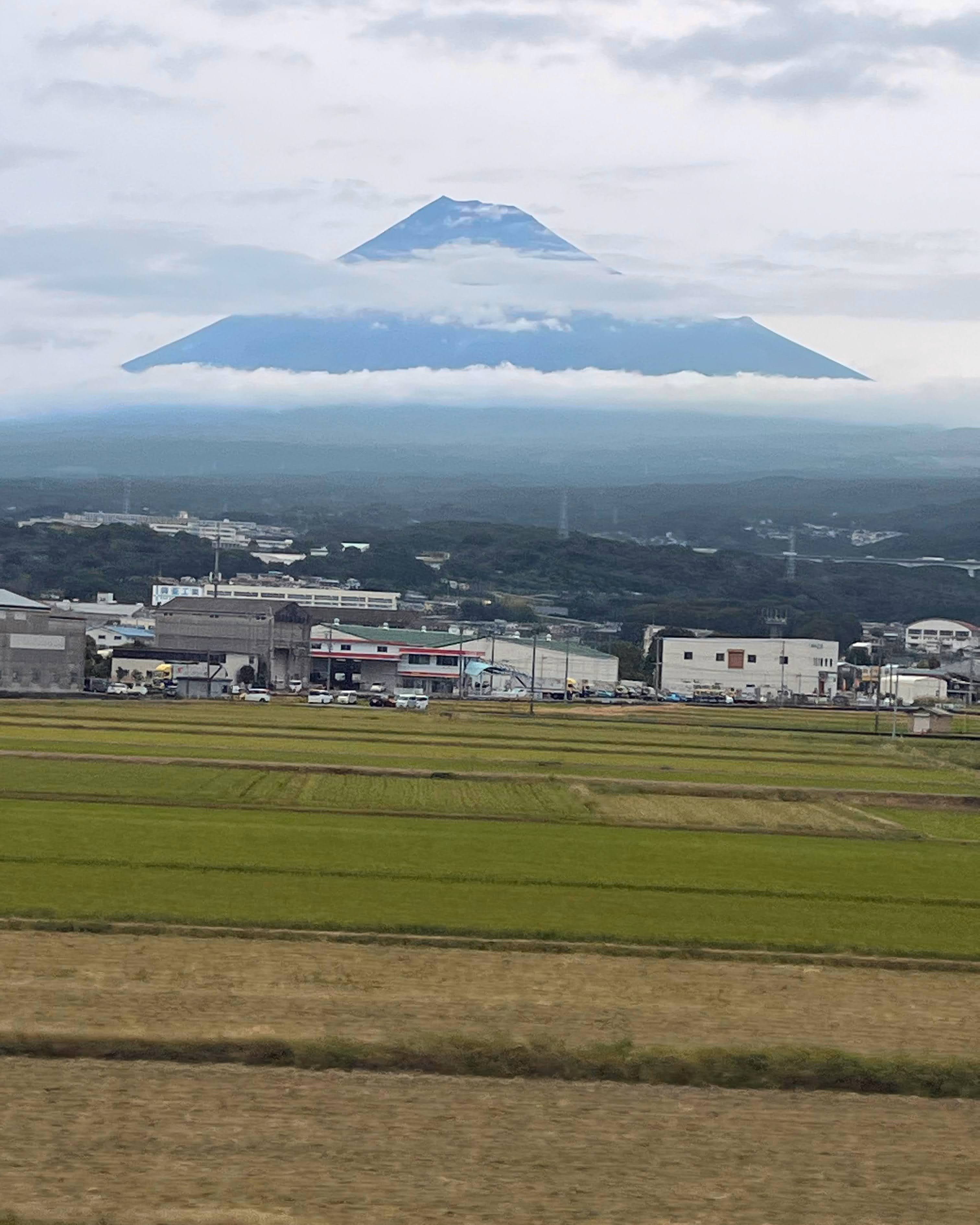Hi hi hi,
Milestone hit last week: first “work trip” for snowbird! I was in Tokyo and Shizouka for whistle-stop tour of potential partners and clients across a wide range of industries. I took a red-eye back last Friday and rushed right into Deepavali celebrations, leaving no time for a five finds newsletter last week! But before we get into the finds for the week I want to talk about Fuji-san.
Mt. Fuji is one of the most iconic totems of Japan. When you look at it for the first time, you instantly realize why there is so much reverence for it in the country - hence the “Fuji-san”. I’ve had the privilege of seeing it many times - up close but also from trains, buses and even flights.
Sighting the summit is a very unpredictable endeavor. Even on a clear day, the mountain can suddenly get shrouded in a cloud quilt. This makes every clear sighting of the summit an exercise in awe. On this trip, I got lucky and got a glimpse of the summit twice! TWICE! The first was during the flight’s descent into Tokyo - just right altitude, right time, right corner of the plane.


Fuji-san, from above and below.
The second time was on the train ride to Shizouka on a shinkansen. I was accompanied by friends & partners from Anchorstar who showed me how you can look up which train you’re going to be on and there are online guides that will recommend which seats to pick for a clear view of Mt. Fuji. They said “I hope you get to see Fuji-san today!” And I found myself instinctively responding with “I don’t think we decide if we get to glimpse Fuji-san. I think Fuji-san decides if we get to see it.” That sounds very trite and woo-woo, but I think goes into something I’ve found to be instinctively true in my work. Too much of how we live our lives and run our businesses expects the world to be a stable place. Where if we take X and Y steps we will get Z results. But the multiverse reminds us, on a daily basis, that it doesn’t care for our thirst for determinism. And when Z doesn’t happen, there’s panic, dejection, or resentment. But if you start with the fundamental acknowledgement of the world being capricious, you start to view things probabilistically. “I’m not sure if Z will happen, but at least I can increase the likelihood if I do X and Y.” It’s one of the things that separates planning from strategy. It’s also a good tactic to use for elections that you’re probably doomscrooling through right about now. As Nate Silver puts it “If you care about what happens in this election, don’t sweat the polls — go vote.”
Back to Fuji-san. What I was unprepared for, is seeing the summit without any snow. It’s the first time in ONE HUNDRED AND THIRTY YEARS that Mt. Fuji has yet to see snow by the end of October. That’s the real scary part of wicked problems like climate change - we don’t even know what the consequences are, let alone the probabilities of those consequences.
Here are your finds for the week:
- MALLS ARE BACK While malls are still ridiculously popular in Asia, that hasn’t been true for the US and parts of Europe. The past decade has been the story of decaying malls in the west. But not anymore. New data from Yelp finds that more people are visiting malls for dining experiences than they were five years ago.
- LASER HISTORY Archaeologists have revealed an ancient lost Mayan city, unearthing monumental structures such as pyramids and plazas. Named Valeriana, the city is believed to have been founded before 150 AD.
- RANDOMNESS “Polls and models become a vehicle for what psychologists call transference: basically, people displace all their anxieties about the election onto the forecasts and the people who design them.”
- BOYS DON’T READ I didn’t read for pleasure as a kid. The lack of a functioning library in my hometown didn’t help. I read for school, sure, but I didn’t pick up a book to read for fun until I was in college. And I have my now wife, the friend, to thank for that. Boys aren’t exposed to emotionally intelligent characters in the books marketed to them.
- LANGUAGES A language scientist delves into historic and current efforts to catalog the planet’s 7,000-plus languages, uncovering colorful tales and Herculean challenges.

